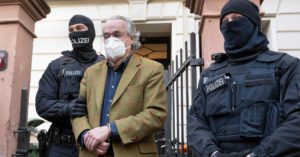Both IE campuses were transformed into even more international and diverse hubs early this month, as the IE Debate Club hosted the third edition of IEU Model United Nations (IEUMUN). They had the pleasure of welcoming 19 chairs, 170 delegates, 10 faculty advisors and 30 staff members; originating from over 25 different countries and 5 continents.
Model United Nations is an academic simulation of the United Nations. Students play the role of delegates from different countries, and attempt to solve real world issues with the policies and perspectives of their assigned country. With online conferences, participants can attend Model United Nations globally and from the comfort of their homes. Day 1 of IEUMUN began in the monastery-turned-university walls of the Segovia campus. The rest of the conference continued within the modern IE Tower, in Madrid.
Participating universities included Leiden University, Brussels School of Governance, United Nation Student Association of Barcelona, Universidad Europea, Université Jean Moulin Lyon 3, Copenhagen Business School and Universidad Autónoma de Madrid.
Every team received a country to represent upon registration for the conference. Each student in a team represents that country in a different committee, with different topics. In this year’s edition of IEUMUN, participants were divided into the following eight committees: the Special Political and Decolonization Committee (SPECPOL); the Economical and Financial Affairs Council (ECOFIN); United Nations Security Council (UNSC); International Criminal Court (ICC); Disarmament and International Security Committee (DISEC); Organización de los Estados Americanos (OEA); United Nations High Commissioner for Delegates (UNHCR) and finally, and the Bicameral Crisis on the First Chechen Wars.
This year, SPECPOL was the biggest committee in the conference, and covered two topics; namely the “Comprehensive Evaluation of the question of Peacekeepers,” and the “Eastern Mediterranean Crisis”. SPECPOL welcomed three chairs, due to its size and the vast range of arguments under both topics. They were: Raquel Franco Sampaio, a first year Economics student from Brazil; Manuela Camarero, a second-year LLB BIR student from Spain, and Cassidy Lapp, a third-year Law student from the USA.
The MUN experience is not complete without the delegates and their active participation, which brings the conference to life. Shimwa Omanwa, the delegate of Kenya within SPECPOL, shared her take on it, “the first topic regarding peacekeepers was selected at the chair’s discretion, since it would be faster to get through and did not seem to have as many components as the other topic.” She believed that from the opening speeches, the topic seemed to be easily understood, and debates would be quicker than expected. Every country unanimously agreed that peacekeeping missions should be kept, but modified due to past atrocities committed by some of the blue helmets. The formation of blocks, and writing of working papers in back rooms was the closest that delegates got to absolute chaos and anarchy.
Across all committees, delegates shared that they particularly enjoyed it when the debate became slightly stagnant and they had brief crisis situations. This forced all countries to have a stance on a prescribed matter within minutes, and the matter constantly developed.
IEUMUN goes down in IE’s history as groundbreaking; both in fostering stronger relationships across universities worldwide, and making its participants more active global citizens. Pablo Cuesta, the president of IE’s Debate Club, noted, “it was incredible to organize, and even more incredible to see students from universities all over the world coming together to enjoy IEUMUN 2022.”






